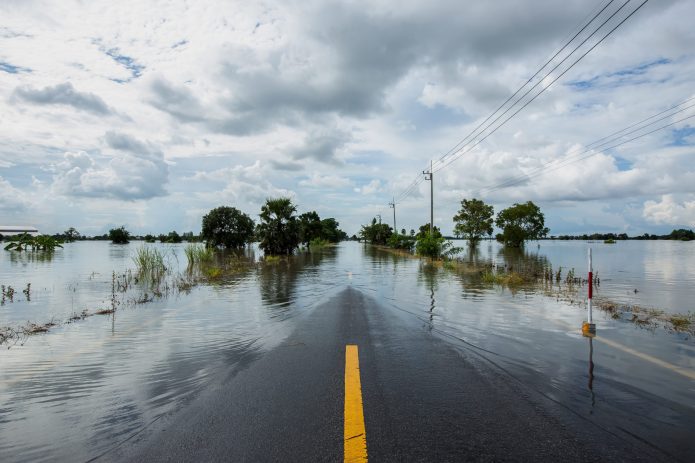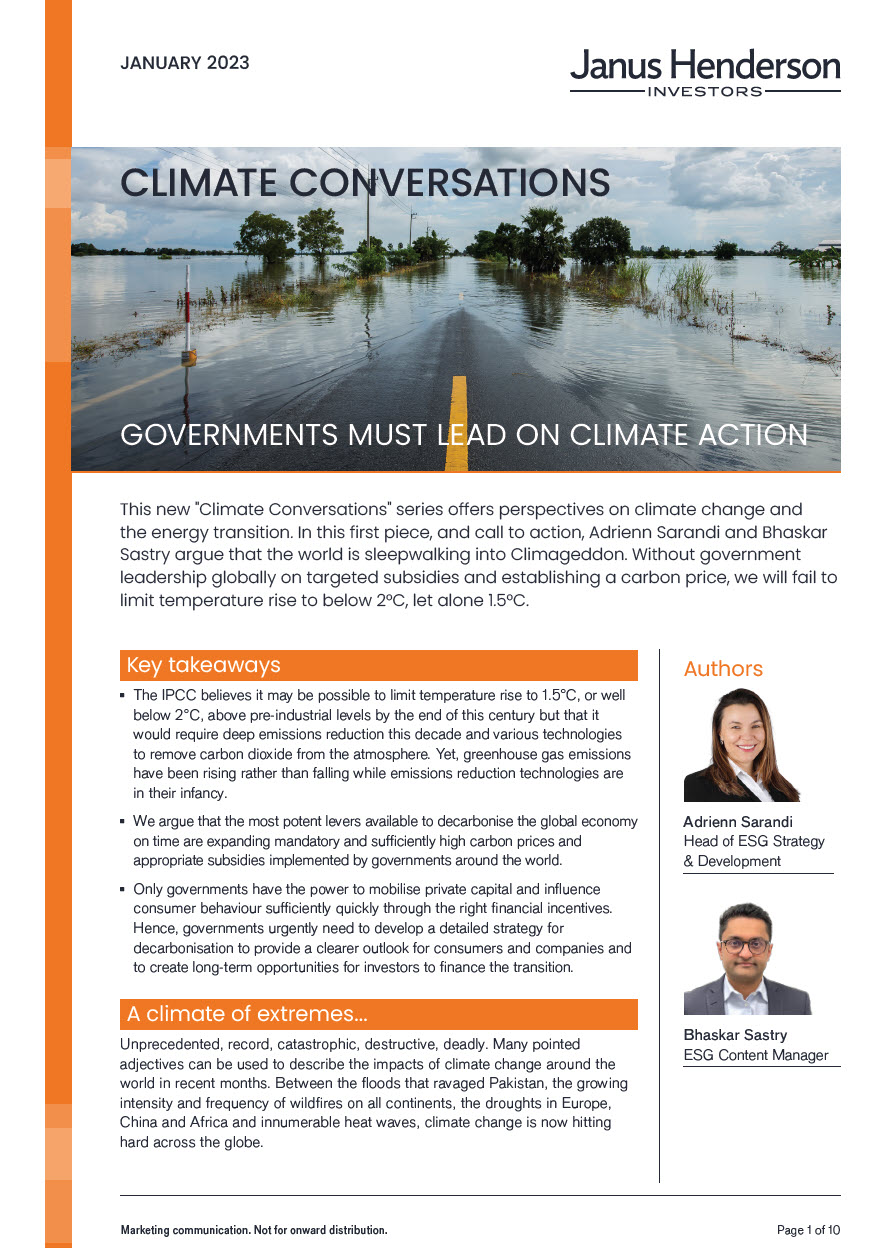Governments must lead on climate action
In the first "Climate Conversations" post, Adrienn Sarandi and Bhaskar Sastry argue that the world is sleepwalking into Climageddon without government leadership on targeted subsidies and establishing a carbon price.

2 minute read
Key takeaways:
- The IPCC believes it may be possible to limit temperature rise to 1.5°C, or well
below 2°C, above pre-industrial levels by the end of this century but that it
would require deep emissions reduction this decade and various technologies
to remove carbon dioxide from the atmosphere. Yet, greenhouse gas emissions
have been rising rather than falling while emissions reduction technologies are
in their infancy. - We argue that the most potent levers available to decarbonise the global economy on time are expanding mandatory and sufficiently high carbon prices and appropriate subsidies implemented by governments around the world.
- Only governments have the power to mobilise private capital and influence consumer behaviour sufficiently quickly through the right financial incentives. Hence, governments urgently need to develop a detailed strategy for decarbonisation to provide a clearer outlook for consumers and companies and to create long-term opportunities for investors to finance the transition.
The new “Climate Conversations” series offers perspectives on climate change and the energy transition.
A climate of extremes
Unprecedented, record, catastrophic, destructive, deadly. Many pointed adjectives can be used to describe the impacts of climate change around the world in recent months. Between the floods that ravaged Pakistan, the growing intensity and frequency of wildfires on all continents, the droughts in Europe, China and Africa and innumerable heat waves, climate change is now hitting hard across the globe.
The impacts of these climate extremes are not short-lived and transitory but long-lasting and cumulative, with the poorest most at risk. Approximately half the global population is ‘highly vulnerable’ to climate change and millions already face starvation and water shortage. Madagascar has experienced the “world’s first climate change famine” according to the World Food Programme.
We are in an emergency situation, a “Code Red” for humanity, according to the Intergovernmental Panel on Climate Change (IPCC), a United Nations-led panel of scientists representing 196 countries.
The full article is available here.
This information is issued by Janus Henderson Investors (Australia) Institutional Funds Management Limited (AFSL 444266, ABN 16 165 119 531). The information herein shall not in any way constitute advice or an invitation to invest. It is solely for information purposes and subject to change without notice. This information does not purport to be a comprehensive statement or description of any markets or securities referred to within. Any references to individual securities do not constitute a securities recommendation. Past performance is not indicative of future performance. The value of an investment and the income from it can fall as well as rise and you may not get back the amount originally invested.
Whilst Janus Henderson Investors (Australia) Institutional Funds Management Limited believe that the information is correct at the date of this document, no warranty or representation is given to this effect and no responsibility can be accepted by Janus Henderson Investors (Australia) Institutional Funds Management Limited to any end users for any action taken on the basis of this information. All opinions and estimates in this information are subject to change without notice and are the views of the author at the time of publication. Janus Henderson Investors (Australia) Institutional Funds Management Limited is not under any obligation to update this information to the extent that it is or becomes out of date or incorrect.


